The Government of Mongolia may cancel and replace the development and financial plan for the country’s vast Oyu Tolgoi copper-gold mine, Canada’s Turquoise Hill (TSX, NYSE: TRQ) said on Monday.
The Rio Tinto-controlled company said Mongolian authorities are dissatisfied with the top miner’s plans. They are particularly concerned about the costs of the expansion, recently updated to $6.75 billion, about $1.5 billion higher than its original estimate.
Mongolia believes the significant cost increase has eroded the economic benefits it expected to receive from the Oyu Tolgoi mine, Turquoise Hill said.
Shares in the company dropped to their lowest in a month on the news, down 21.4% in New York to $11.38 and more than 24% in Toronto to C$13.88 by 10:50 am EST. That leaves the miner with a market cap of almost C$2.99 billion (about $2.33bn).
Rio Tinto (ASX, LON, NYSE: RIO) had in 2019 flagged stability risks associated with the original project design, which translated into as much as an additional $1.9 billion cost and a 30-month delay.
RIO TINTO RECENTLY CONFIRMED THAT OYU TOLGOI’S UNDERGROUND EXPANSION WOULD COST $6.75 BILLION, ABOUT $1.5 BILLION HIGHER THAN ITS ESTIMATE IN 2015
The miner confirmed in December the new cost estimate for the underground expansion, adding that production would begin in October 2022.
Erdenes Oyu Tolgoi LLC, the Mongolian state-owned company that owns a third of the mine, reacted to the new timeline and budget by saying that Rio had not delivered on its 2015 promises.
Erdenes’ interest in Oyu Tolgoi is technically held through a 34% in a Mongolian company called Oyu Tolgoi LLC. The remaining stake belongs to Canada’s Turquoise Hill Resources (TSX, NYSE: TRQ), which is 50.79% owned by Rio Tinto.
“The Government of Mongolia has indicated that if the Oyu Tolgoi project is not economically beneficial to the country, it would be necessary to review and evaluate whether it can proceed,” Turquoise Hill said in a statement.
Ulaanbaatar also said that expecting Oyu Tolgoi to pay corporate income taxes or profit taxes only in four years until 2051, casts doubts as to the economic benefits of the project.
“The estimates whereby the Government will never receive dividend payments [from the Oyu Tolgoi project] and will incur debt of $22 billion create great difficulties for our future co-operation,” it said in the letter quoted by Turquoise Hill.
The Vancouver-based miner said it was committed to engaging immediately with both Mongolian authorities and Rio Tinto to address the development plan and revisit the sharing of economic benefits arising from the Oyu Tolgoi project.
Under scrutiny
Mongolia had requested an independent review of the cost blowout and delays at the project, with results expected in early 2021.
The dispute over funding the expansion’s cost increase began heating up in early November when Turquoise Hill launched arbitration proceedings against Rio Tinto to get clarity on funding.
The mining giant has said it will not allow the Canadian company to take on more than $500 million in additional debt. Rio also asked Turquoise Hill to fill up a funding gap of up to $3 billion by reprofiling loans and raising equity.
Minority investors in Turquoise Hill, including US hedge fund Pentwater Capital, oppose Rio’s attempts to force the Canadian miner to conduct an equity raise. They claim there are “much cheaper and more advantageous financing options” available to the company, such as streaming and bond financing.
Investors also worry about Rio growing its stake in Turquoise Hill through such an equity raising, basing this argument on the expectation that Rio would underwrite any shortfall created by minority Turquoise Hill shareholders who do not participate in the raising.
Mounting issues
Mongolia and the various foreign investors in Oyu Tolgoi are also embroiled in a tax dispute, currently waiting for a United Nations arbitration decision.
On Monday, Turquoise Hill warned Oyu Tolgoi LLC intends to apply to the arbitration tribunal for leave to amend its statement of claim and issues raised in the 2016-2018 Tax Assessment. Until December 23rd, the country had sought to get an alleged balance from the period between 2013 and 2015.
Turquoise Hill also flagged on Monday a proposed class action against the company and some of its current and former officers in the Superior Court of Montreal. The claim alleges the miner made material misstatements and omissions with respect to, among other subjects, the schedule, cost and progress of Oyu Tolgoi’s development.
The company said it believed the case lacked merit.
The government of Mongolia has complained about overruns in the past. A group of legislators recommended last year a review of the 2009 deal that launched construction of the mine. It also advised revoking a 2015 agreement allowing for the now ongoing underground expansion.
The parliament ended up approving a resolution in December 2019, which reconfirmed the validity of all the Oyu Tolgoi mine-related agreements. The decision brought an 18-month-long review to a close.
Rio has repeatedly said the underground expansion is its most important growth project. Once completed, Oyu Tolgoi will churn out 480,000 tonnes of copper a year from 2028 to 2036.
Fonte: Mining.com





